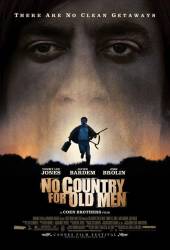Character mistake: When Moss is arguing with the border guard at the Eagle Pass international bridge, he claims that he is a veteran of the "12th Infantry Battalion." There has never been such a thing as the 12th Infantry Battalion in either the Army or the Marines. Rather, they are based on a structure of 3-4 battalions per numbered regiment (i.e., 1st Battalion, 3rd Infantry Regiment/2nd Battalion, 5th Marine Regiment, etc). The film takes this seriously, as the guard, a veteran himself, buys Moss' story.
Suggested correction: He might have meant 12th Infantry Regiment. From Wikipedia: "Three 12th Infantry battalions deployed to South Vietnam with the 4th Division from August through October 1966."
If he said "battalion" but meant "regiment", then it's still a valid mistake for saying it wrong and being believed.
Regiments have not existed as functional units in the US Army since shortly after Korea; they are simply historic names associated with various battalions. Marine battalions are not numbered higher than 4 in any regiment, and in any case do not carry an explicit designation of "infantry."
Audio problem: When, at the end of the movie, Chigurh leaves the accident site after he said to one of the boys: "You didn't see me, I was already gone", the boy answers saying: "Yessir", but his lips don't move.
Suggested correction: The boy's mouth is open. You can say "Yessir" with your mouth open without moving your lips. Try it.
Trivia: Joel Coen and Ethan Coen share the record of four Oscar nominations for a single person for the same film (in this case, shared by the two) with Orson Welles' four nominations for Citizen Kane (1941) and Warren Beatty's for Reds (1981). The Coens' four nominations are for Best Picture (as producers with Scott Rudin), Best Director, Best Adapted Screenplay, and Best Editing (under the pseudonym Roderick Jaynes). Welles was nominated both Best Picture (also as producer) and Best Director, as well as Best Original Screenplay (won, and shared with Herman J. Mankiewicz), and Best Actor. On the other hand, Beatty was nominated for Best Picture (also as producer), Best Director (won), Best Original Screenplay with Trevor Griffiths and Best Actor.
Suggested correction: Strictly speaking, Orson Welles was not nominated as producer of Citizen Kane. At the time, the nomination for Best Picture was for the studio (RKO), not the producer(s). In addition, Warren Beatty has actually achieved this feat twice, for Reds (as mentioned), as well as three years prior, when he received the same four nominations for Heaven Can Wait (1978).





